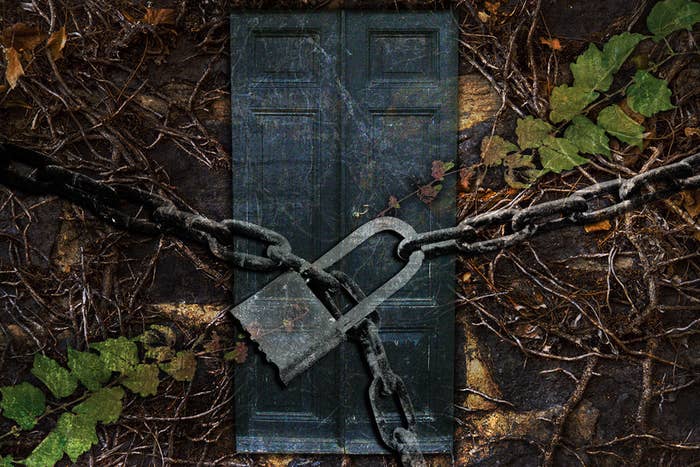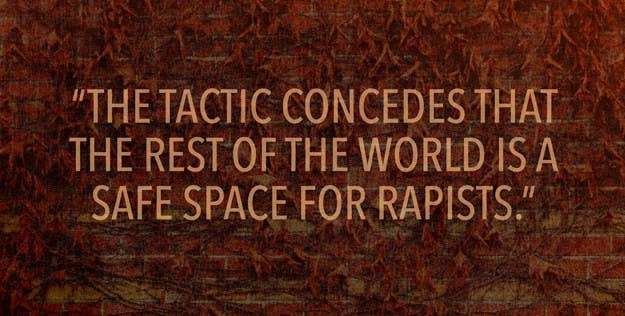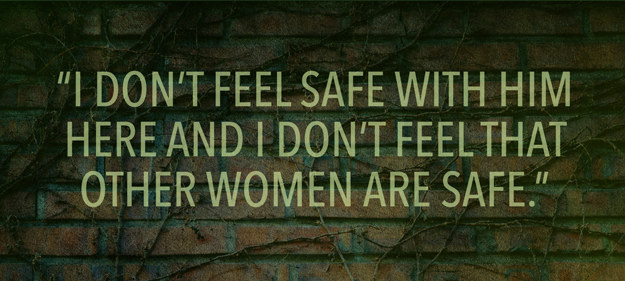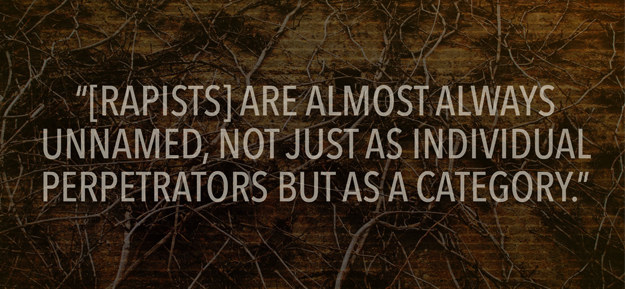
Lena Sclove transferred to Brown University in January 2013 in hopes that the famously progressive Ivy League university would provide her with a less conservative experience than her former college. Her first semester lived up to her expectations: Sclove immersed herself in theater and activism work and even chose to live a few blocks off campus in Providence, Rhode Island, during the summer.
Then, in August, she was raped so roughly that, months later, she had to go on medical leave for a spinal neck injury resulting from strangling.
Administrators dissuaded Sclove, now 22, from pressing criminal charges against her assailant, a fellow student and former friend. Instead, they encouraged her to go through the university process, which requires a much lower standard of proof in sexual misconduct hearings. In October, a disciplinary panel found her assailant guilty of four violations of the Brown University code of student conduct, including sexual misconduct involving one or more of the following: penetration, violent physical force, or injury. His punishment: one year's suspension, meaning the two students would overlap during the 2014-15 academic year.
"While I believe someone found guilty of violent rape should not be able to graduate at all, the least Brown can do is keep me safe for the rest of my time as an undergraduate," Sclove wrote when she appealed the decision. Vice President for Campus Life and Student Services Margaret Klawunn denied the appeal, writing in an email that the assailant's suspension length was "reasonably consistent with precedent in similar cases." Sclove says that later, Klawunn told her she was "sorry [Sclove] was disappointed."
"It's not that I'm disappointed, it's that I find it extraordinarily scary because I don't feel safe with him here and I don't feel that other women are safe," said Sclove, who hasn't decided whether she'll re-enroll if her assailant is allowed to return in good standing. "How can Brown claim to be a progressive institution when they're making decisions based on 'precedents' that protect him more than they protect me?"

Brown didn't respond to a request for comment, but told other outlets that "The university takes a number of steps, including sexual assault orientation sessions for incoming students, to ensure that every student is aware of applicable policies" and that decisions do not "always yield a completely satisfying outcome for someone who has been victimized."
The gender equity law Title IX mandates that schools work with complainants who seek accommodations including housing and class changes, whether or not they formally report. But the law is vague, and administrations are often warier of inconveniencing alleged rapists than they are quick to protect alleged survivors. Students have a right to education free of sex-based discrimination, harassment or violence, but when schools fail to act, they force them to choose between their life on campus and living alongside their assailants. I've reported on sexual violence on college campuses for years. In more cases than I can remember, the victim withdrew while her attacker graduated.
Repeat rapists on college campuses are responsible for 90% of rapes and commit six rapes on average, according to research on "undetected rapists" on college campuses. (In fact, another Brown student wrote a letter to the university detailing her own assault by Sclove's reported rapist; it was not factored into the decision-making process.) The report also found that rapists who choke victims, like Sclove's assailant, are at a higher risk of repeat offenses.
Around 1 in 5 women are sexually assaulted while in college, according to a recent report from the White House Council on Women and Girls. Thanks to pressure from the White House and student activist efforts, schools are currently scrambling to ensure that they're following federal laws concerning campus sexual misconduct. Administrators at elite liberal arts schools that profit off their forward-thinking reputations know their communities expect more than compliance.
But instead of enforcing stricter punishments for students found guilty of sexual misconduct — as this Huffington Post piece notes, students at elite universities across the country say their schools are too lax on sex offenders, a charge campus violence reports reflect — many schools attempt to create a parallel culture via "safe spaces."
The tactic concedes that the rest of the world is a safe space for rapists. When schools imply rapists can't access these spaces, they protect them too.
"The [Brown] administration talks a big game but when push comes to shove, there isn't always the largest commitment to maintaining safe spaces in actuality," said Becca Wolinksky '14, a co-organizer of Nudity in the Upspace. "But the school still gets to ride on the coattails of its progressive reputation."
Effective anti-rape policy won't come from schools that distance themselves from assault by analyzing the space where violence occurs instead of the perpetrators — but, it's a great way to keep crime rates low. It's estimated that 63% of schools fail to accurately report campus violence as required by federal law. When administrators do decide to crack down, it's rarely on cases that will up their sexual assault numbers.
In 2008, Brown alum Margaree Little was suspended for a semester with no guarantee of readmission after throwing a pie at New York Times columnist Thomas Friedman. During the disciplinary process, she said, an administrator called for her expulsion by making the case that she had endangered his life by physically assaulting him.
While she was waiting to hear if she was kicked off campus — later, she said, she was told she likely would've been expelled if she didn't apologize to Friedman — she remembered walking past an exhibit about the history of student activism and radical organizing.
"I think Brown uses that history to market itself as a progressive place," she said. "Certain kinds of organizing are tolerated, but only if you don't cross the line of jeopardizing Brown's image." Who is charged with maintaining that image: men who rape or the women who get raped?

Students at other liberal arts schools also say they feel frustrated by the way their administrations only champion "safe spaces" in theory. Columbia University is papered with "Consent Is Sexy" posters with statements like, "Asking for consent can be as hot, creative, and as sexy as you make it." Freshmen take a mandatory workshop called "Consent 101" that attempts to make sexual consent a blast, between ice cream socials and walking tours during student orientation — students are given candy prizes for coming up with creative ideas, and counselors receive a bonus incentive of getting to move into their dorms a week early. But one Columbia student said she was raped as a freshman by the same "Consent Educator" who taught her how to discuss consent in low-stake terms in the fall of 2009.
"Hosting school-sponsored or chaperoned parties just isn't a satisfactory Band-Aid," said Anna Bahr, a Barnard senior and reporter for the student news site Bwog who often covers campus sexual assault. "Students are assaulted sober, they're assaulted drunk, and they are absolutely assaulted in college-owned buildings at college-sponsored events, while college employees aren't so far away."
Students at schools that permit them to host consensually sexy "safe spaces" have recently shuttered their events. For decades, Oberlin College students could attend "Safer Sex Night," described as "a time for scantily clad Obies to get together for some wild dancing, free condoms and dental dams." This year, the student-run Oberlin Sexual Information Center decided to cancel it, saying, "The reality was an environment where many students were intoxicated, not all people felt safe, and not all activity was consensual." In 2010, Wesleyan University's student society Eclectic canceled its annual "Sex Party" after too many sexual harassment allegations and trips to the hospital. As these decisions reflect, supporting the creation of temporarily safe spaces isn't the same as ensuring student safety. That doesn't stop schools from taking the opposite approach and constructing areas where sex isn't facilitated, consensual or otherwise.

In October 2012, Angie Epifano wrote an essay that went viral nationwide and detailed appalling administrative failings at Amherst College: Epifano wrote that after she was was raped by an acquaintance as a freshman, she was pressured to "forgive and forget" by the school's sexual assault counselor, denied access to support groups, and involuntarily committed to a psychiatric ward. In response, a special oversight committee was assembled to improve the college's ability to prevent sexual violence and eventually released a report, "Towards a Culture of Respect."
"What we all want is to eliminate sexual misconduct before it occurs," the committee wrote in the report. But there is "no need to name specific student groups" that have been found to intimidate victims from reporting assault. The euphemism "when something goes wrong" is employed more than once, as in "...when something goes wrong and a sexual assault does occur..." This language suggests that rape occurs by happenstance, a crime without a criminal.
How do you solve a problem if you refuse to identify the perpetrator? The committee has one creative suggestion for how students should socialize: a "large and seasonally permanent structure on the main quadrangle, in the middle of the freshman living space." Specifics weren't necessary when identifying rapists and the groups that protect them, but elaborate detail is involved in the description of an "oversized tent, containing a sound system and stage" that would be "well lit and inviting" with events "held nearly nightly, but most certainly on weekends." Among these events could be "large-scale poetry slams, small concerts, outdoor movies, recitals, dance lessons, and the like," and thus there would be "no need to be drunk in order to escape the Amherst Awkward feeling."
The language in the Amherst report turns rape into a passive occurrence that can be treated with equally passive policy. The target isn't rapists, and there's little that acknowledges the widely understood behavior of rapists. Instead Amherst, and schools like it, shift their focus to the circumstances or spaces where rape occurs. But students can't escape rape by going to a well-lit poetry slam or a sexy condom-strewn party. Schools don't need to help students avoid the "Amherst Awkward" feeling; they need to protect them from men who rape — who are almost always unnamed, not just as individual perpetrators, but also as a category.
But until colleges would rather prosecute rapists than build tents or allow lingerie-clad students to give out condoms, attempts at "cultural change" will remain naive gestures.
